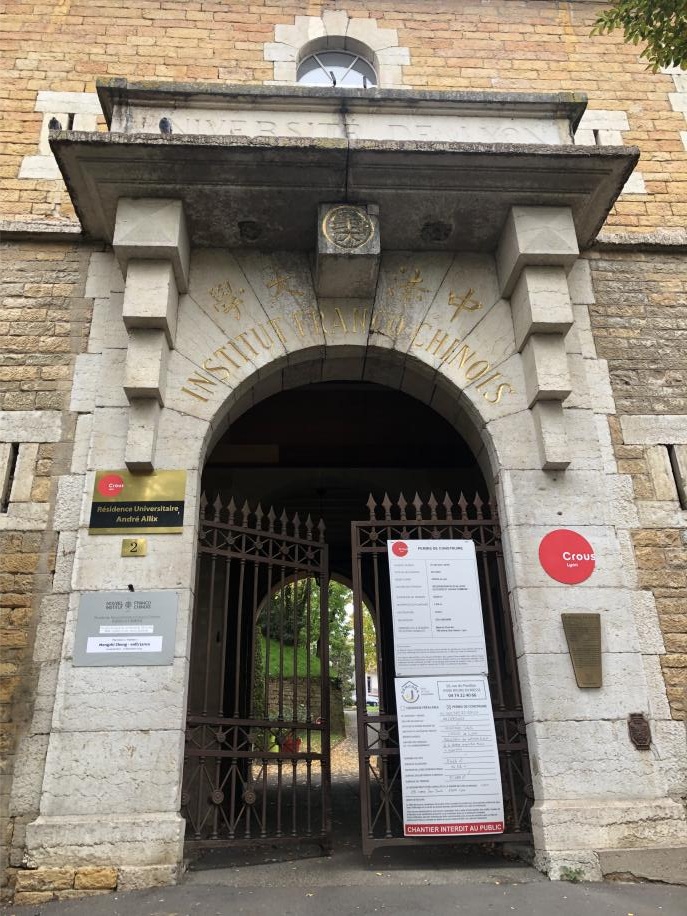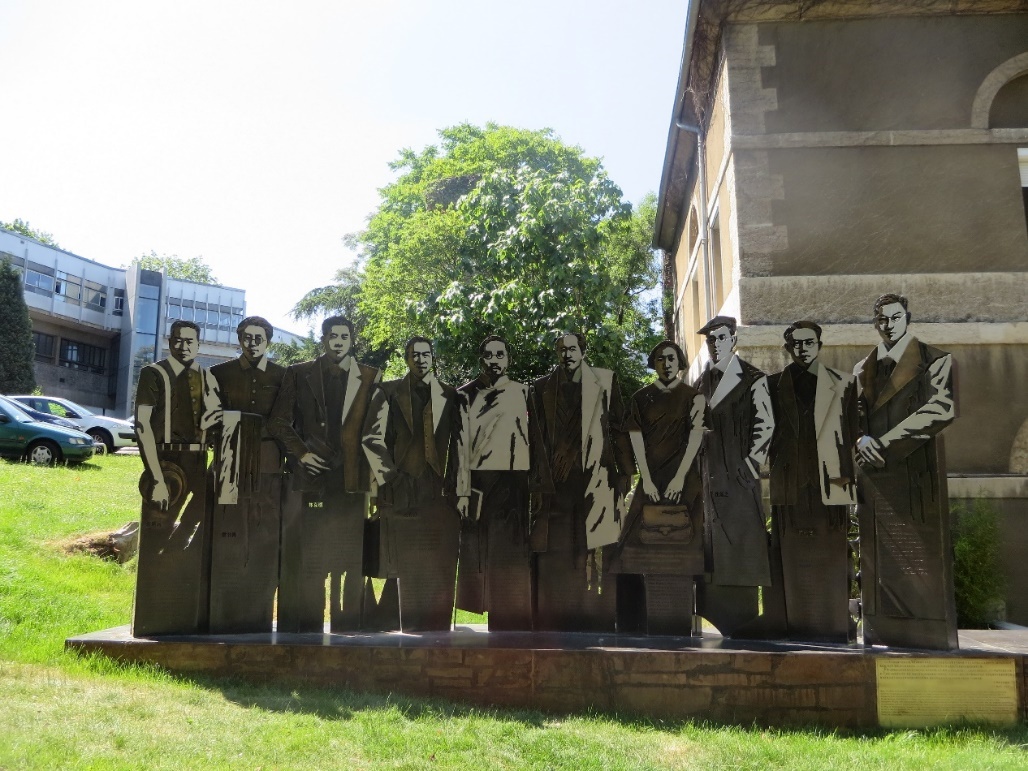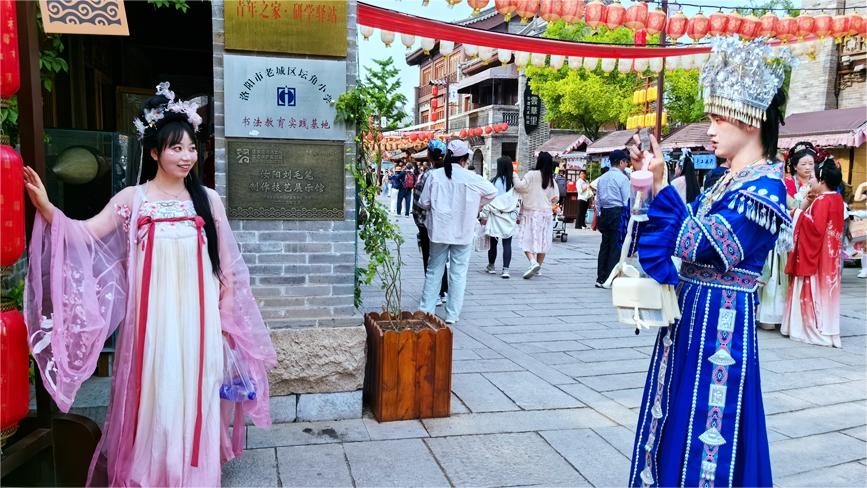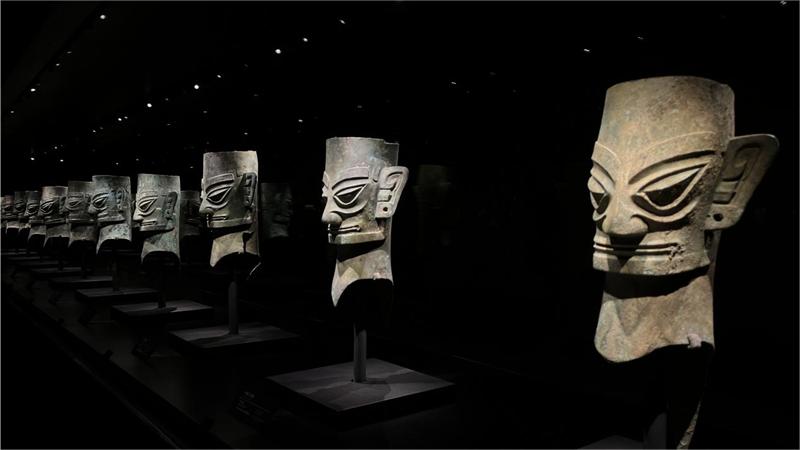Lyon Sino-French Institute: bridge of communication between China, France
On a hill in Fourvière, France stands the former site of the Lyon Sino-French Institute. Its mottled stone gate bears an engraving that reads "Sino-French Institute" in Chinese and French.

The entrance to the former site of the Lyon Sino-French Institute, France. (Photo: Liu Lingling/ People's Daily)
More than 100 years ago, groups of young Chinese people embarked on their ocean voyages to France with the ambition to revitalize China and serve their country. Thanks in part to their efforts, China is completely different today from what it once was.
2014 marked the 50th anniversary of the establishment of diplomatic relations between China and France. In March that year, Chinese President Xi Jinping visited the former site of the Lyon Sino-French Institute, where he stopped from time to time to view treasured historical photos and objects.
"That day, I presumed President Xi would only stay for three to five minutes, but his stay lasted over an hour. He listened carefully to each introduction, exchanged views with the guide from time to time, and leafed through some historical documents," recalled Alain Labat, head of the Federation of Franco-Chinese Associations and vice-president of the New Franco-Chinese Institute.

President Xi Jinping visits the former site of the Lyon Sino-French Institute, France, March 26, 2014. (Photo: Lan Hongguang/ Xinhua)
"During our exchange, President Xi mentioned the significance of this institute to the Communist Party of China's pioneers who went to Europe under the Diligent Work-Frugal Study Movement," Labat said, noting that Xi was quite familiar with this period of history and also shared stories of the progressive young Chinese studying and working in France.
"The Lyon Sino-French Institute had witnessed a unique period of exchange between China and France, and recorded China's two important periods of foreign relations in its recent history," Xi said during the visit.
As the only overseas university institution that China founded in modern times, the Lyon Sino-French Institute was established in July 1921. It has trained many Chinese who later became crucial leaders in the founding of the People's Republic of China (PRC). After its resumption in the 1980s, the institute has continued to educate various talents for China's reform and opening-up.
The institute is both a witness to a specific period of history and a bridge of communication.
Labat recalled that President Xi told the alumni and friends of the institute that some of them had made important contributions to the institute, some had become cultural ambassadors, and some were working at the forefront of Sino-French exchanges and cooperation, and hoped for their continued support in the development of Sino-French relations.
It was during this trip to Europe that President Xi visited UNESCO headquarters in Paris, where he expounded on his views on the cultural exchange and mutual understanding of civilizations. He used the metaphors of "tea" and "wine" to represent Chinese and Western civilization during a speech at the College of Europe in Bruges, Belgium, advocating that China and Europe should work together to promote the blossoming of all human civilizations.
"In retrospect, President Xi's assertions on humanistic exchanges and reflections on the mutual understanding of civilizations have become invaluable political foresight in a world where geopolitical risks escalate and conflicts continue," Labat told People's Daily.
Heart-to-heart friendship is enhanced through cultural communication. "The enhancement of cultural exchanges of the two nations, both representing Eastern and Western civilizations, would consolidate public support for developing bilateral relations, improve the two cultures and forge diversified global civilizations," Xi wrote in the preface for a Chinese cultural relics exhibition that opened in France in October 2014.
On April 2, the exhibition "The Forbidden City and the Palace of Versailles" was unveiled at the Palace Museum in Beijing. Its around 200 exquisite cultural relics showcase the grand cultural and artistic exchanges that occurred between the two countries over the past century.
From establishing cultural centers to holding cultural and language exchanges, China and France have set an example for the mutual learning of world civilizations through people-to-people and cultural exchanges.
The handshakes, candid meetings and in-depth exchanges between the heads of state continue to advance the China-France relationship.
In Nice, French President Emmanuel Macron gifted President Xi a precious copy of the original French version of "An Introduction to The Analects of Confucius" published in 1688.
In Pine Garden in Guangzhou, Guangdong Province, the two presidents listened to a millennia-old masterpiece played on a guqin, a traditional Chinese musical instrument, savored Chinese tea and chatted about the rise and fall of powers over the past 1,000 years.

Pictured are bronze statues of prominent Chinese figures at the Lyon Sino-French Institute. (Photo: Xing Xue/ People's Daily)
In front of the history museum of the Lyon Sino-French Institute stands 10 statues gifted by the Guangzhou Municipal Government. Among them are renowned Chinese educator Cai Yuanpei (1868-1940) and painter Chang Shuhong (1904-1994), both of whom had close connections with the institute.
"To better commemorate and sustain this friendship, we have built the New Franco-Chinese Institute to establish a new platform for engagement in the hopes of inspiring young people from both countries to add a new page to French-Sino cooperation," Labat said.
Time witnesses, changes and accomplishes the friendship. Moving on to the future, the China-France friendship will continue to write new chapters.
(Translated by Fan Liuyi and Chen Zhiyi; edited by Huang Jingjing and Sun Tianren)
Photos
Related Stories
- Xi Story: Exchanges between Chinese and French civilizations, from Confucius to Montesquieu
- "A mind broader than the sky": Xi and French culture
- Interview: High-tech collaboration a "flagship" of Sino-French relations, says Airbus China CFO
- Chinese, French experts seek multilateral future at global governance forum
- China records 104,000 arrivals by French nationals since January
Copyright © 2024 People's Daily Online. All Rights Reserved.









